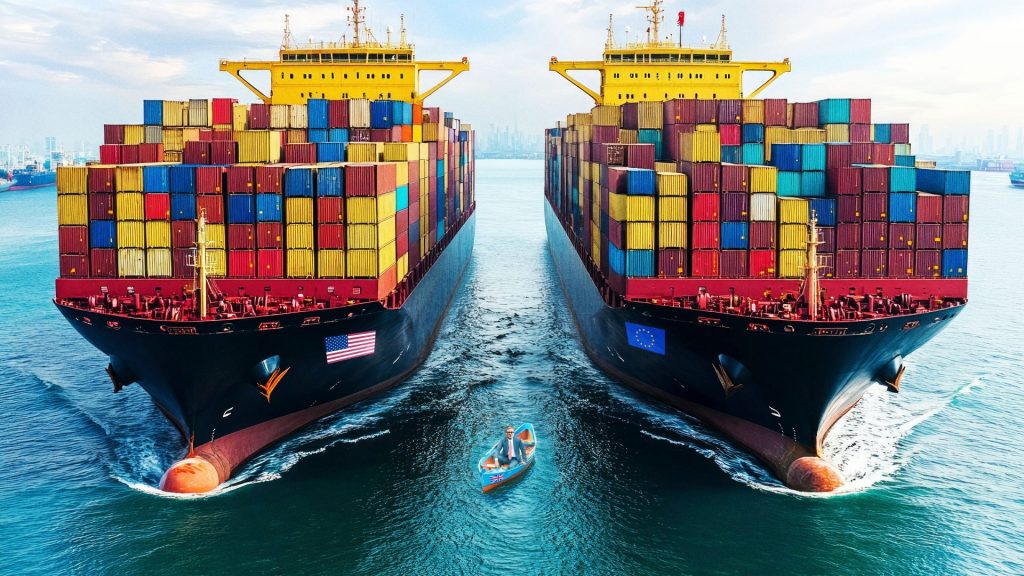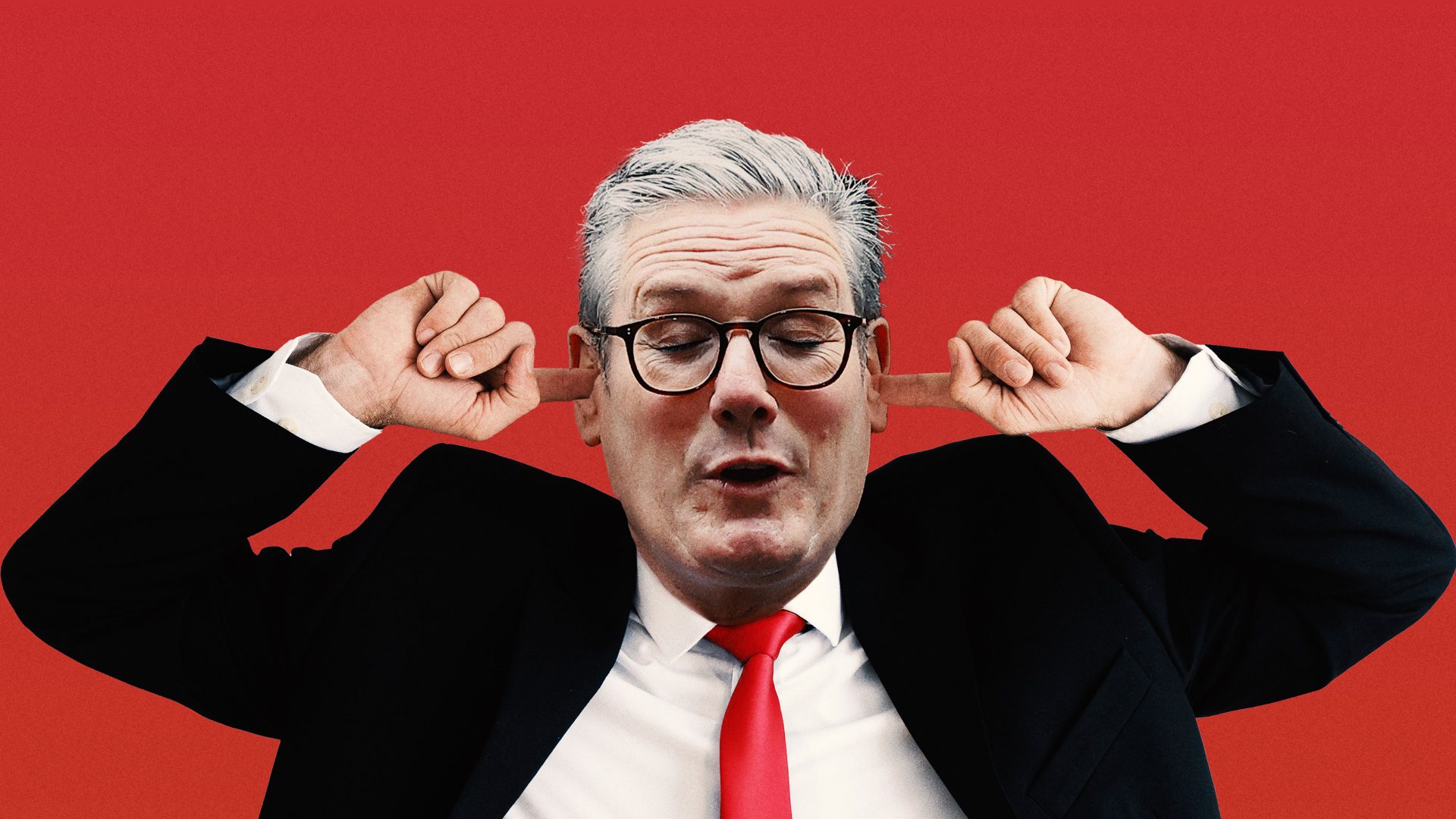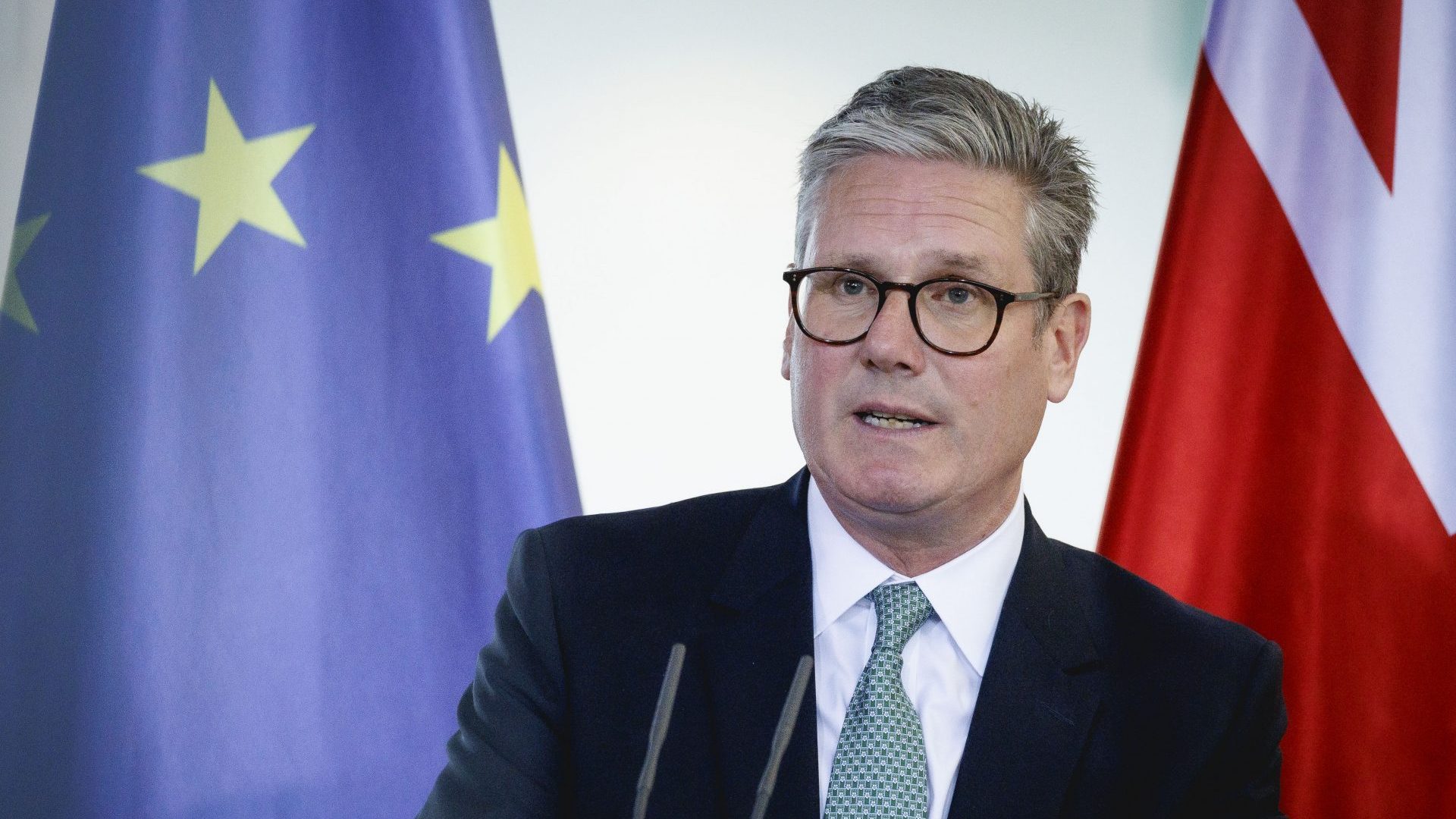Even those seasoned Donald Trump watchers who are paid to spend their time analysing the stuff he spouts in his rallies for clues about the future economic direction of America will have been shocked to hear him refer to “tariff” recently as “the most beautiful word”. For an economist, it’s not beautiful – it all sounds very sinister.
Trump’s pre-election pledge to impose 60% additional tax on Chinese exports to the US and 10-20% on anything else from elsewhere may soon become reality. The repercussions are likely to be severe.
It is therefore time for a fundamental rethink of Britain’s relationship with Europe.
Trump is signalling the beginning of a trade war, and we shouldn’t be surprised. In his previous presidency, he raised duties on all imports of steel and aluminium, including from the EU, back when the UK was still a member. By either imposing or threatening tariffs he also renegotiated the trade agreement between the US, Canada and Mexico to the US’s benefit.
At the same time he weakened the World Trade Organisation, and though the 25% steel and 10% aluminium tariffs on Europe were finally withdrawn by Joe Biden in 2021, they were replaced by so-called “voluntary export restraints”. Better than what before, but hardly free trade.

Tariffs on China – and others – have also been used by the Democrats, who remained broadly protectionist throughout Biden’s tenure. They also restricted exports of strategically important technologies to China and its allies, and set limits on the use of Chinese technology in the US. A number of other western countries did likewise. Additionally, Biden’s Inflation Reduction Act effectively delivered subsidies to US firms, causing friction with Europe and elsewhere.
The situation is already fragile. Now the International Monetary Fund estimates an all-out trade war would result in the loss from the global economy of about 7% of all economic activity. In the words of the IMF’s Gita Gopinath, that’s the equivalent of the combined GDPs of the French and German economies – gone.
According to the National Institute of Economic and Social Research, the UK would be one of the most affected countries, with growth reduced by 0.7% in the first year of tariffs and by 0.5% in the second year. Inflation and interest rates would also be higher. That of course assumes that no “special relationship” deal can be struck with the US.
And if the UK did manage to reach some agreement with the US, it is hard to imagine that it would be tilted in the UK’s favour – that was certainly not the case for Mexico and Canada when negotiating their trade deals with the White House. It would also leave Britain in a very isolated position.
After all, the EU remains our main trading partner. A deal with the US would risk disrupting that relationship.
The Trade and Cooperation Agreement between Britain and the EU is beginning to look very inadequate. It needs to be renegotiated by 2026. This has reignited the question of whether Britain can withstand such intense global economic pressures outside the EU, and whether the answer is a rethink of Brexit.
In her budget speech, the chancellor Rachel Reeves attacked the previous Conservative government for its mismanagement of Brexit – whatever that meant – but she said nothing about what an improvement under Labour might involve. That silence seems inappropriate now that large sections of the UK economy are complaining about the poor business conditions caused by Brexit.
A Home Office study estimates that new visa regimes for skilled workers will add £40bn of extra costs to British businesses over 10 years. Export and import bureaucracy has also complicated trading with the EU.
There are customs declarations and paperwork and rules of origin requirements and regulatory controls for animal and plant products – all of which are causing extra costs and headaches for traders. According to the British Chambers of Commerce, a third of small and medium-sized exporters have stopped trading with Europe, and the economy suffers as a result.
The farming community, which was broadly in favour of Brexit, and which has now been hit by extra inheritance tax bills following Labour’s first budget, has already seen its subsidies cut and costs increase since Brexit. The consequences of this include less choice in supermarkets, and periodic product shortages.
Overall UK trade has suffered. Yes, service exports to the EU have done better than expected, even though in October the outgoing Lord Mayor labelled Brexit a disaster for the City of London in terms of jobs growth in finance, which is now happening elsewhere.
But when it comes to the trade in physical goods, it has arguably gone into reverse. A recent study by Aston University suggested that from 2021-23, goods exports to the EU were 27% below where they would have been if Brexit hadn’t happened and imports 32% below.
Imports keep the market competitive and prices down. Also, UK companies competing with goods coming in from abroad or with a market as large as the EU with its 400 million consumers, gives businesses a huge incentive to invest and innovate.
That can only be made possible by having access to a labour force that can easily expand or contract seamlessly, ie freedom of movement. That way, you have a chance of achieving lower unemployment and a growing economy while avoiding inflation.
This can lead to increased competition for jobs and people may come in from countries that pay less and be prepared to work for less here too. But there has been very little evidence that this suppressed British wages to any significant extent while we were in the EU. The only exceptions were the very low-wage areas such as social care – but in this case, wages are set mostly by the state.
The original report on the single market, the Cecchini report on the “Costs of Non-Europe” came out in 1988. I worked on it.
Its central findings still stand: a single market with free movement of people, goods and services will provide lower prices to consumers, better choice and higher investment and growth. A customs union also eases the bureaucracy surrounding the movement of goods. Removing barriers to trade with your biggest trading partner and neighbours is a good idea.
Since Brexit, we have also endured the impact of Covid and the energy crisis caused by the Russian invasion of Ukraine. But there is ample evidence that the UK has lagged behind other big economies since the end of lockdown.
Rachel Reeves did concede in her Mansion House speech that the economy faced “structural challenges” as a result of Brexit which have contributed to the overall sluggish performance of the UK economy since the financial crisis. The governor of the Bank of England is worried too.
As he followed Reeves, Andrew Bailey suggested that Brexit had cost the economy, and that the trade barriers that have resulted from Brexit “weighed on the level of potential supply”. In Bank of England language, that means Brexit has put extra pressure on costs and therefore contributed to rising inflation.
Higher inflation would obviously be bad for Britain’s growth prospects, which are already weighed down by the pressure on business from the measures in the budget. And this against a background of an already near stagnant economy.
The latest GDP data showed a fall of 0.1% in September, making the growth in the third quarter of the year just 0.1%. By contrast the Eurozone grew by 0.4% over the same period, with even Germany, disproportionately badly hit by the Russian invasion of Ukraine, growing by 0.2% in the three summer months.
On that basis alone, if growth is indeed the goal, closer ties with Europe are a must for Britain, especially in view of Trump’s tariff threats. We can tinker with rules on health requirements, improve the mutual recognition of qualifications, do a bit on youth mobility and accelerate defence cooperation. But it will do very little to improve growth.
Geopolitics and trade tensions are about to turn much nastier. Unless the government sees that membership of the single market and the customs union are no longer taboo subjects, particularly given the fact that a majority of the population think Brexit was a mistake, the UK will be the loser.
Vicky Pryce is chief economic adviser at the Centre for Economics and Business Research (CEBR)



